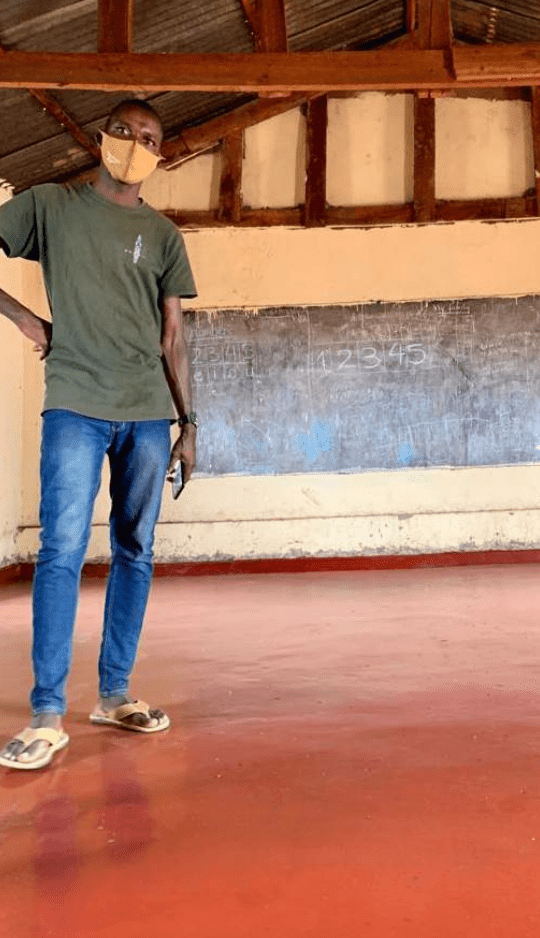Deliciously destigmatized
In Chinese communities everywhere, the Mid-Autumn Festival is fast approaching, and with it, the silky, syrupy indulgence that signals its arrival: the delectable mooncake.
This year in Shanghai, one particular mooncake has already gone viral: the ones sold in the Shanghai Mental Health Center [SMMC] cafeteria, which are stamped with the hospital’s name and logo. The SMMC has long struggled with its public image. Even in bustling Shanghai, mental health issues are often stigmatized, and people who seek help for them face the prospect of public shaming.
Shanghai Mental Health Center’s Mooncakes Go Viral Online https://t.co/EqxER8JiC2 pic.twitter.com/tMx0BQrBdU
— ChinaSource (@ChinaSourceOrg) August 30, 2021
But something changed recently, as evidenced by the surge in demand for SMMC mooncakes. Some residents attribute the shift to the stresses of Covid-19, which revealed that mental health issues can affect anyone. Whatever the cause, out of the blue, an institution that’s used to being whispered about is discovering that its branded mooncakes are suddenly in high demand.
Photos of them are flying on Weibo and WeChat, and locals are scheming up ways to get their hands on the snacks, which are only available to hospital employees. Those who manage to get one are using it as an opportunity to talk openly about mental health on social media. It doesn’t hurt that the mooncakes are top notch — one well-known Shanghai food blogger who acquired one called them “among the top three mooncakes I have ever reviewed… The fillings ooze out as soon as you cut them, and the texture is soft and gooey.”
The craze appears to be a turning point for public perception of the hospital. “There used to be a heavy stigma around the address,” said one resident who lives down the street from it. “The awareness of mental health illnesses among young people has grown, and as a result, prejudice about it is gradually lifting.”
Floor plans
It is often said that housing is health care, an acknowledgment that people’s wellbeing requires a safe, sanitary home — including the part of the home that’s right under their feet.
For more than a billion people around the world, what is underfoot is a dirt floor that can harbor insects, kick up dust and obscure disease-carrying substances like fecal matter. One organization, EarthEnable, started by Stanford University student Gayatri Datar, has replaced 11,000 dirt floors in rural Rwanda and Uganda with a flaxseed resin they invented in house. The resin costs two to five dollars per square meter, a fraction of the cost of cement, and can be paid for over the course of six months by recipient families.

EarthEnable’s efforts echo similar ones that have been implemented elsewhere. In Mexico, the government spent $1.3 billion to install three million cement floors over the course of six years. In one town that received the upgrades, diarrhea in children fell by 13 percent and anemia dropped by one-fifth. Advocates are quick to point out that improved floors must be paired with other upgrades to work, like sanitation, but under the right circumstances can be one of the cheapest and fastest ways to upgrade housing.
Read more at Bloomberg CityLab
Express service
What if waiting for a bus turned out to be the best part of your day? RideKC, Kansas City’s regional transit service, has reimagined one of its bus stops with that ideal in mind.
At the city’s East Village Transit Center, folks don’t just stand around looking at their phones. They can engage with a range of city services while being assisted by the people who actually work for them. Straphangers can check out books from the library system, get a Covid shot, talk with a representative from the local community college about how to pursue a degree, and — in the coming months — search for a job with help from someone who works with the Full Employment Council, a local group that connects qualified workers and businesses.
It’s a simple, light-lift idea that combines transit use and civic engagement. So far, the bus stop services have been popular enough that RideKC is looking to expand them — its latest priority is integrating a healthcare organization that can help bus riders access preventative care or apply for insurance. “We want to be a beacon on the east side of downtown,” said the vice president of RideKC. “Most of the amenities downtown pretty much stop at City Hall, and there’s really nothing over here but us.”







